What is a cottage industry
A cottage industry consists of several small manufacturing businesses run by individuals or family members at their homes or in small workshops with minimal capital. The cottage industry is an industry where people make things at home or in small workshops. These people usually use basic tools and methods, and it’s often done by families or individuals. It could be anything from making clothes or crafts to food items. It’s a small-scale business that’s usually found in rural areas and helps provide jobs and support local economies.
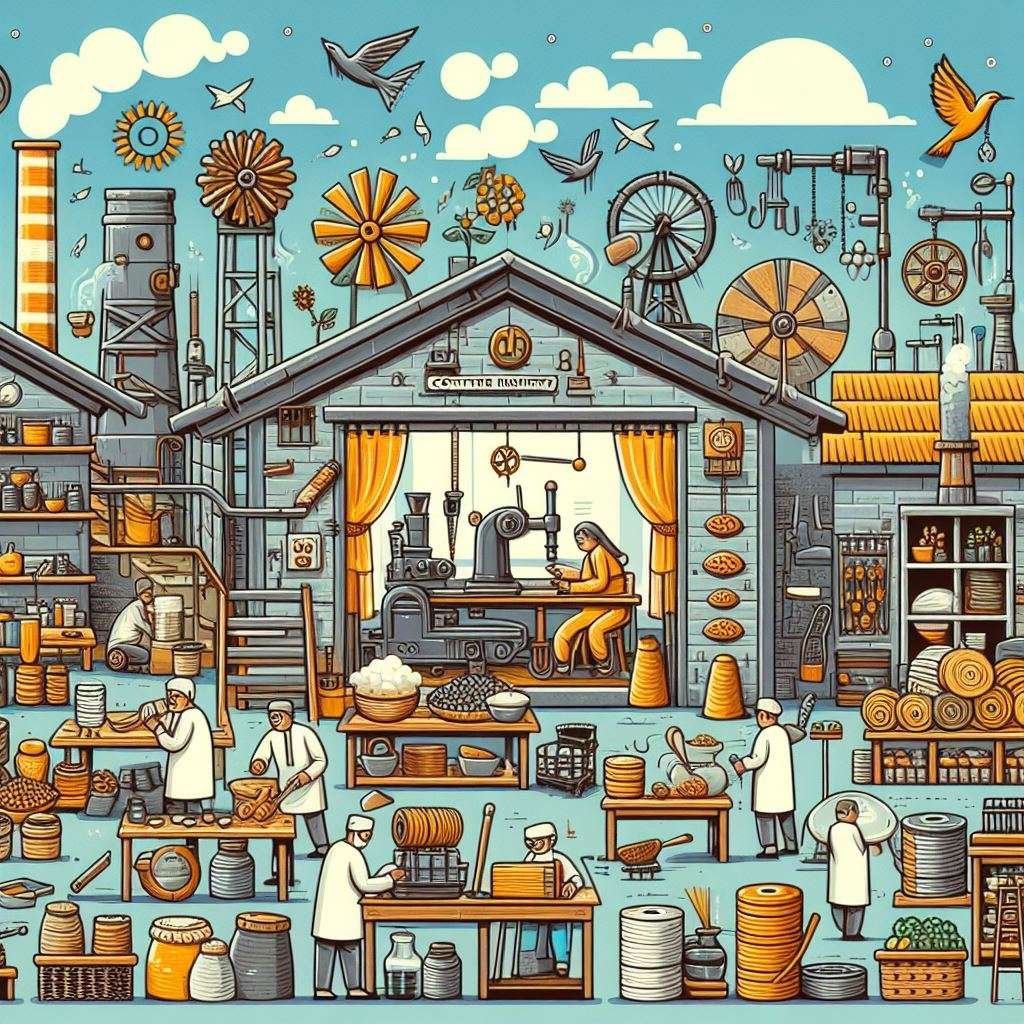
Significance of
cottage industry
Economic Impact: Cottage industry provide vital sources of income, especially in rural areas, encouraging economic stability and reducing poverty. By specializing in traditional crafts, cottage industries help protect cultural heritage and authenticity.
Environmental responsibility: Many cottage industry give priority to eco-friendly ways, contributing to environmental sustainability.
Community development: Cottage industry promote local entrepreneurship and partnership, encouraging economic growth and social togetherness.
Adaptability: Cottage industry can quickly adjust to market changes, with their flexibility, ensuring elasticity and long-term feasibility.
TYPES OF COTTAGE INDUSTRIES
Following are the types of cottage industries people are running commonly.
1. Textile and Apparel Production: This includes activities such as weaving, knitting, sewing, and garment making, which often lead in small workshops or homes.
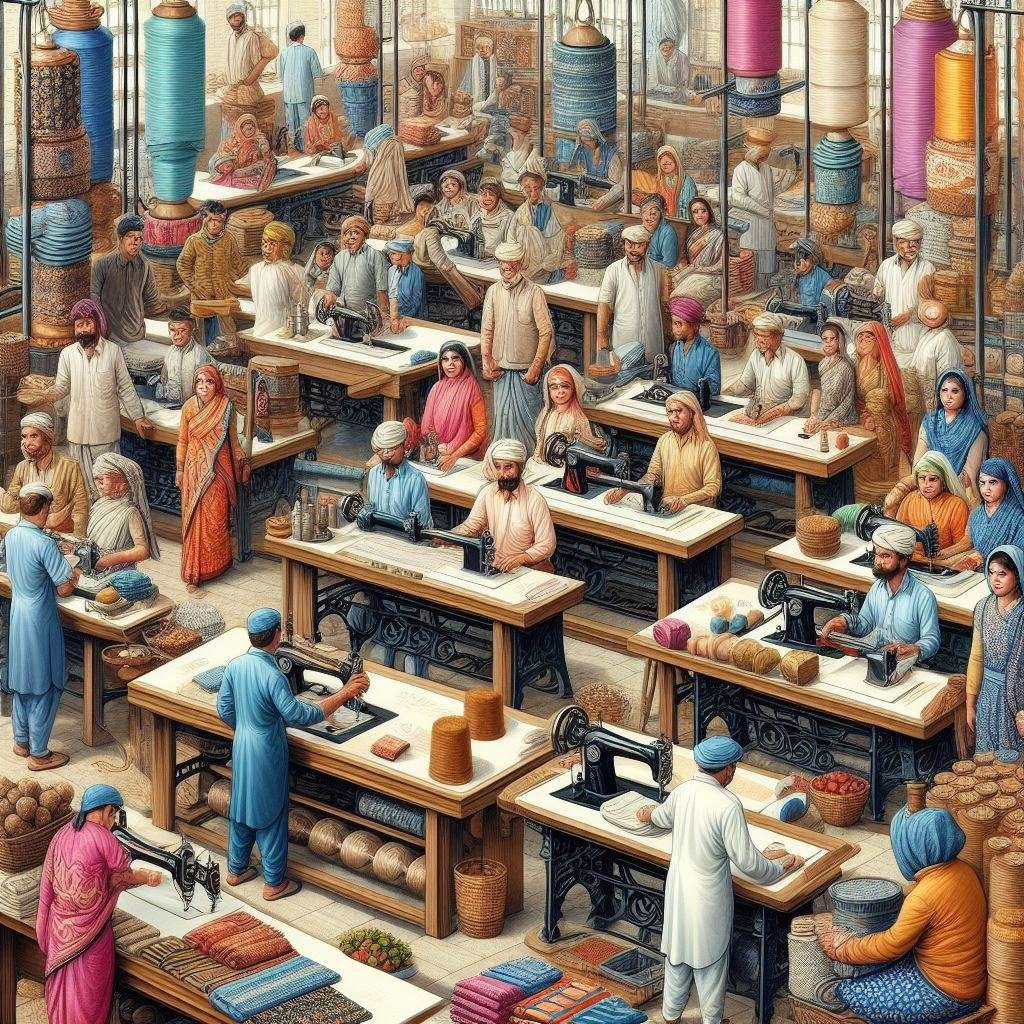
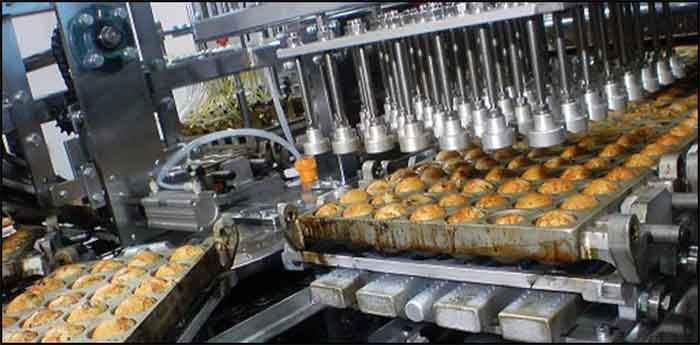
2. Food Processing and Preservation: Includes artisanal food production such as baking, canning, pickling, and brewing, typically using locally sourced ingredients.
3. Handicrafts and Artisanal Goods: Encompasses a wide range of traditional crafts such as pottery, woodworking, basket weaving, metalwork, decorative items, and jewelry making.


4. Cottage Agriculture: Involves small-scale farming activities such as organic farming, specialty crop cultivation, beekeeping, livestock, and animal husbandry. There are a few countries that are major exporters of flowers all over the world.
5. Home-Based Services: Includes services provided from home, such as catering, home-based childcare, tutoring, freelance writing, and virtual assistance.
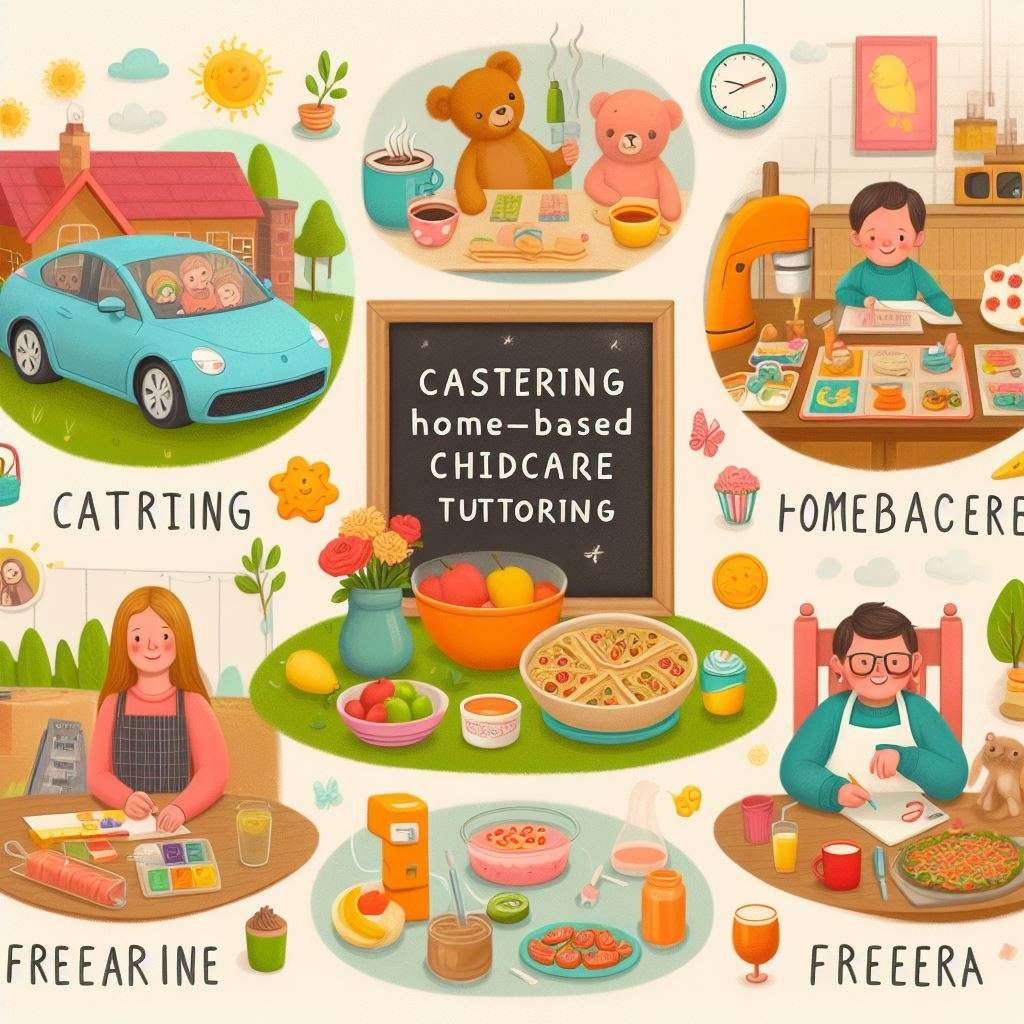
ADVANTAGES OF
COTTAGE INDUSTRY
1. Economic Opportunity in Rural Areas: Cottage industries in rural areas help generate incomes; and decrease in unemployment rates, especially for people with limited formal education.
2. Preservation of Cultural Heritage:Cottage industries play a very vital role in the preservation of cultural heritage, as many industries involve traditional crafts and skills that are deeply implanted in the local culture and heritage. By supporting and promoting these local industries, rural communities can preserve their unique cultural heritage.
3. Environmental Sustainability: Eco-friendly production methods and utilization of locally sourced materials are being prioritized by many cottage industries, which contributes to environmental conservation.
5. Flexibility and Adaptability: By quickly adapting to changing market demands and circumstances, cottage industries can ensure their resilience, and long-term viability and can help local producers to get access broader markets, especially through online platforms and regional markets. This adds value to local products as well.
4. Local Community Development: By catering to entrepreneurship and collaborating within local communities, cottage industries provide a platform for local entrepreneurs to start small businesses with lower initial investments.
6. Women Empowerment: Cottage industries can be a great platform for women, especially in rural areas, by providing them with opportunities for financial independence, skill development, and community development.
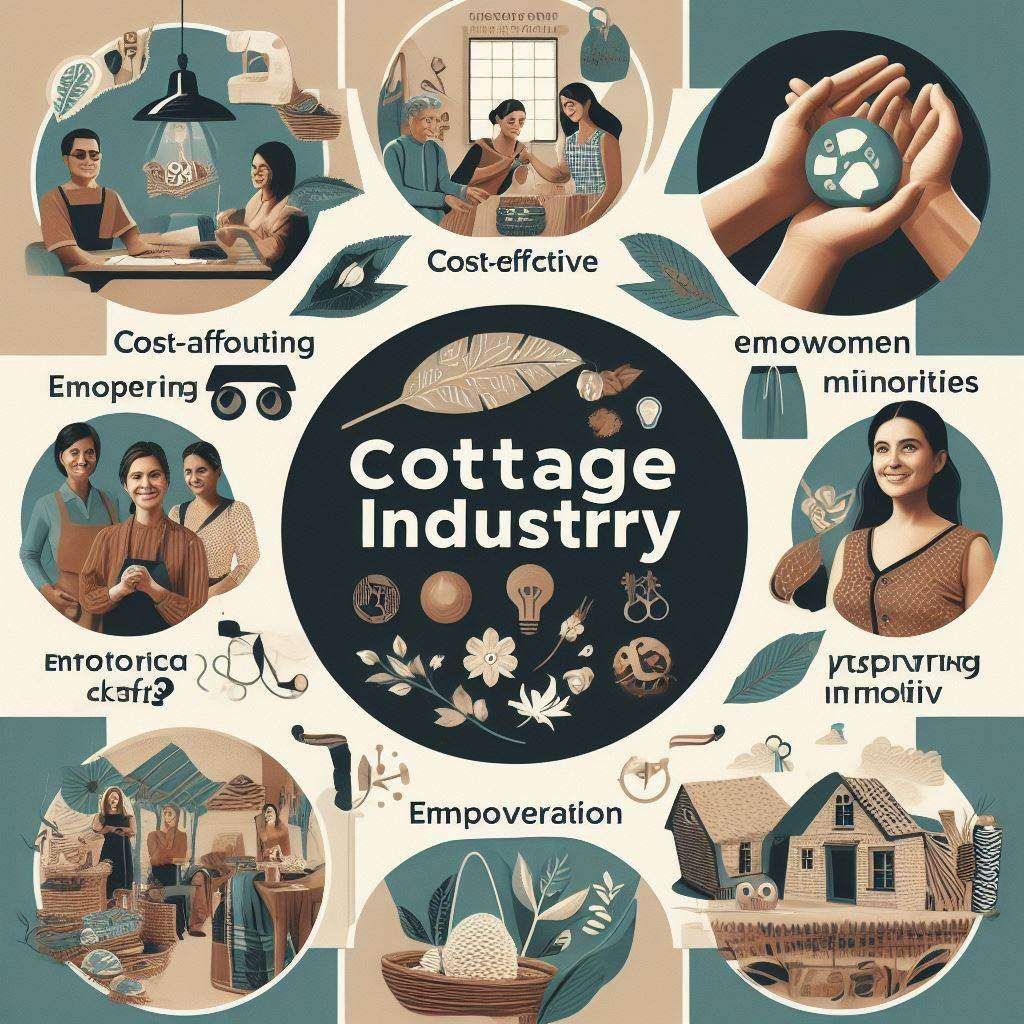
HOW TO START
COTTAGE INDUSTRY
1. Identify Your Passion and Skills: Choose a specific niche, product or service that aligns with your skill, interest and market demand.
2. Conduct Market Search: Through market research, analyze the demand for your chosen product or service, potential customers, competitors, and trends to assess the viability of your cottage industry area.
3. Develop a Business Plan: Outline your business plan by outlining your business goals, targeted market, price strategy, marketing strategy, and financial projections. This plan can be a roadmap for your business and can be very beneficial in seeking funding and potential partnerships.
4. Obtain Necessary Permits and Licenses: Check all the domestic legal rules and regulations and legal requirements to start a small business or cottage industry in your area. Make sure to register your business, get any necessary licenses, and comply with tax regulations.
5. Set Up Your Workspace: Create a dedicated workspace for your cottage industry, be it a home studio, a workshop, or a small rented space, and make sure that the space complies with safety and zoning regulations.
6. Source Materials and Equipment: Identify suppliers for raw materials, tools, and equipment needed for production, ensuring quality and affordability.
7. Establish Branding and Marketing: Develop a unique brand identity, including a name, logo, and packaging design. Promote your products through online platforms, social media, and local events.
8. Ensure Product Quality and Safety: Adhere to quality standards and safety regulations relevant to your industry. Test your products thoroughly to maintain customer satisfaction and trust.
9. Manage Finances: Keep track of expenses, sales, and cash flow using simple accounting tools or software. Set aside funds for reinvestment and emergencies.
10. Start Production and Sales: Begin manufacturing your products or offering your services according to demand. Explore various sales channels, such as direct-selling, online marketplaces, or local shops.
11. Provide Excellent Customer Service: Build relationships with customers by offering responsive communication, timely delivery, and addressing any concerns or feedback promptly.
12. Adapt and Grow: Stay agile and open to feedback, trends, and opportunities for innovation. Continuously refine your offerings and business strategies to sustain and grow your cottage-industry venture.
MANAGING OPERATIONS IN
A COTTAGE INDUSTRY
1. Production Process and Quality Control: Certifying a smooth production process and carrying out vigorous quality control measures are foremost in maintaining uniformity and customer satisfaction. Engrossment in detail and adherence to standards set cottage-industry products apart from their mass-produced rivals.
2. Marketing and Sales Strategies: Innovation in marketing and sales strategies can magnify the visibility of cottage industry products. Using social media, participating in local artisan fairs, and collaborating with like-minded businesses are effective ways to reach a broader audience.
3. Financial Management and Sustainability: Cautious financial management is essential for the sustainability of cottage-industry ventures. The long-term viability of the business can be safeguarded by placing clear budgets, trailing expenses, and modifying revenue streams.
Govt Support and Policies for Cottage Industries
1. Grants and Subsidies: Governments often provide financial help, like grants and subsidies, to cottage industries. These funds can be a game-changer, helping with buying equipment, improving infrastructure, or expanding operations. Grants are like gifts from the government that don’t need to be paid back, while subsidies lower the costs of things like raw materials or energy. Access to these funds can give cottage industries the boost they need to grow and innovate.
2. Regulatory Support: Governments set rules and standards that cottage industries must follow. These rules cover things like how products are made, safety measures, and environmental protections. By having clear guidelines, cottage industries can operate fairly, protect consumers, and ensure quality. Regulations also help with licensing, taxes, and workers’ rights, making it easier for cottage businesses to navigate legal requirements.
3. Sustainability Initiatives: Governments are encouraging cottage industries to be more eco-friendly and sustainable. This means using practices that are kinder to the environment, like reducing waste and using renewable energy. They might offer incentives or training programs to help cottage industries go green. By embracing sustainability, cottage businesses not only help the planet but also appeal to customers who care about ethical production. This can give them a competitive edge in the market.
CHALLENGES OF
COTTAGE INDUSTRY
1. Limited Access to Markets: Cottage industries may face difficulties reaching broader markets due to constraints such as geographical remoteness or lack of distribution channels.
2. Lack of Infrastructure and Technology: Inadequate infrastructure and limited access to modern technology can hinder production efficiency and competitiveness.
3. Competition from Mass-Produced Goods: Cottage industries often compete against large-scale manufacturers that can offer lower prices and greater product variety.
4. Financial Constraints and Access to Capital: Limited access to funding sources and capital investment can impede growth and expansion opportunities for cottage industries.
5. Regulatory Hurdles and Compliance Issues: Compliance with regulatory requirements and standards may pose challenges for cottage industries, leading to administrative burdens and additional costs.
Future trends in
cottage industry
1. Sustainable Practices: Awareness of environmental issues may drive an increased demand for sustainable and eco-friendly products. Hence, the usage of recycled materials or the implementation of energy-efficient production methods can gain huge popularity.
2. Leveraging Technology for Efficiency: Cottage industry operations can be enhanced through integrating technology tools and platforms. Digital solutions can streamline processes and widen reach from online sales platforms to inventory management software.
3. Collaborations and Partnerships in Cottage Industry Communities: Collaborations among cottage-industry artisans and partnerships with complementary businesses can create coordination and stimulate growth. Cottage industry communities can flourish in a competitive market by collectively exhibiting their products and aiding one another.
4. Online presence and E-Commerce: In current times, the online presence of any business, be it on a larger scale or a small scale, is very important. This will help them in getting worldwide recognition. E-commerce platforms help them promote and sell their products all around the world.
5. Digital marketing: Cottage industry holders can use digital marketing tools and methodologies to promote their business. It includes social media advertising, search engine optimization (SEO), and email marketing.
6. Digital Payment Systems: Many digital payment systems allow easy and secure transactions for national and international clients. This can smooth the overall buying and selling process and financial process as well.
7. Inventory Management Software: There is a lot of software that manages inventory. This software can manage the details of raw materials, stocks, and work-in-progress.
COMMON TYPES OF TOOLS OR MACHINES IN COTTAGE INDUSTRY
Sewing Machines: Used in textile and apparel production for stitching fabric and creating garments.
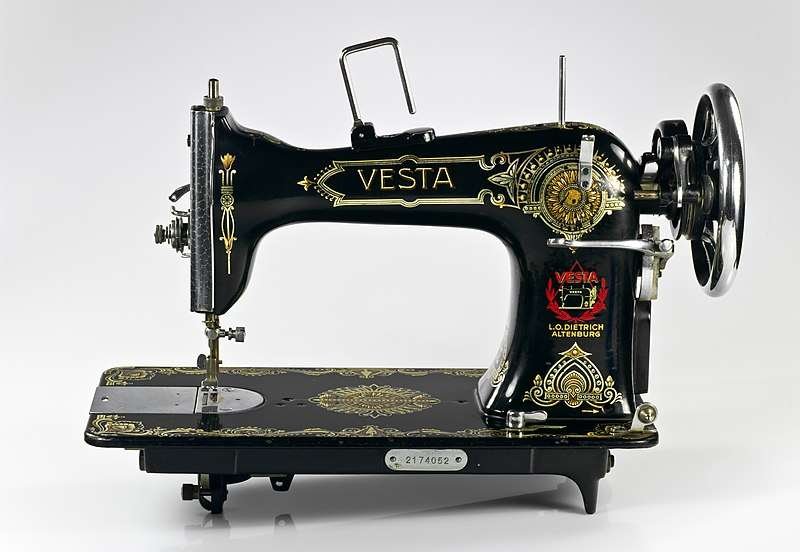
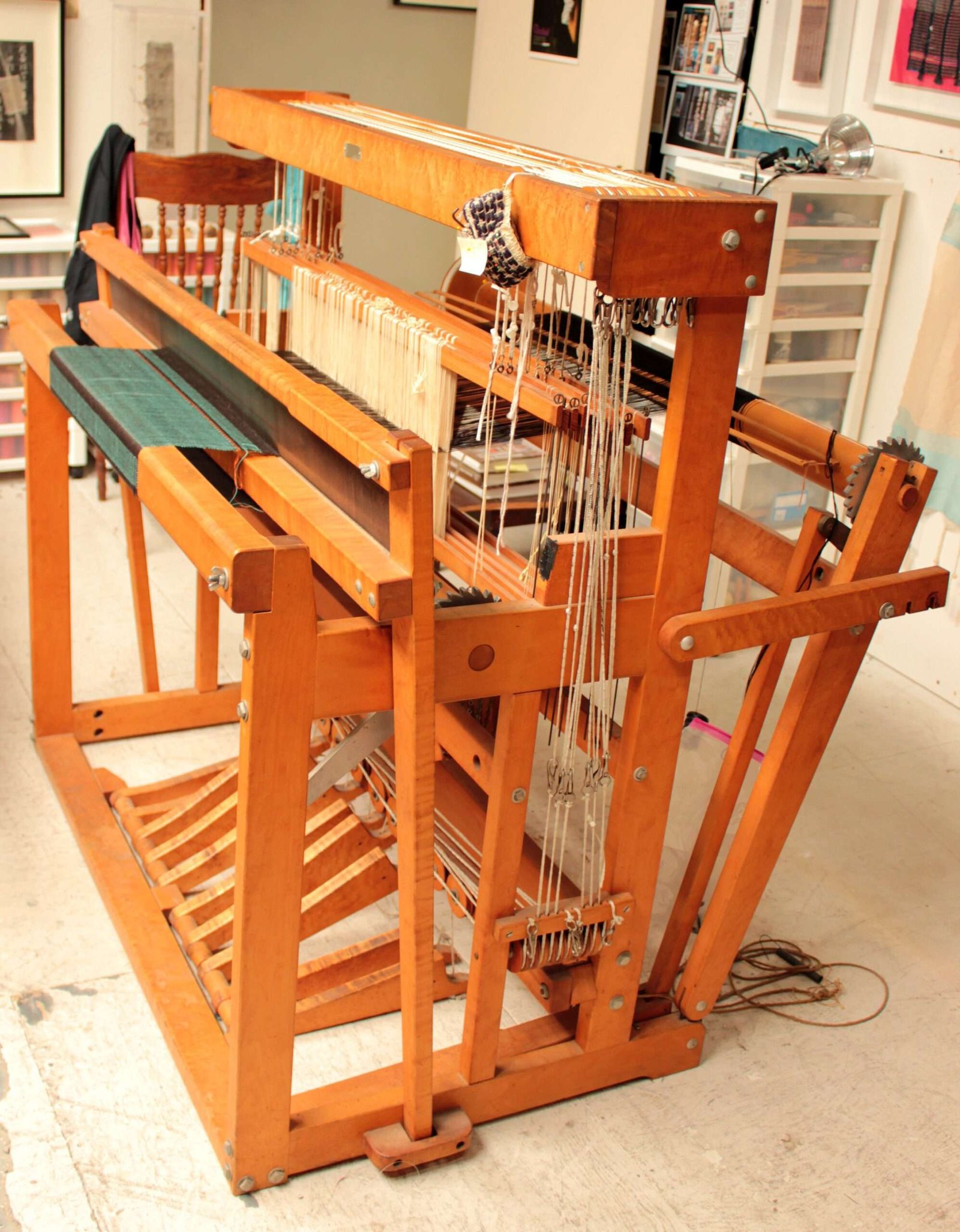
Handloom Weaving Machines: Employed in weaving traditional fabrics and textiles, typically operated manually or with minimal mechanization.
Pottery Wheels: Used by artisans in pottery studios for shaping and molding clay into ceramic products.

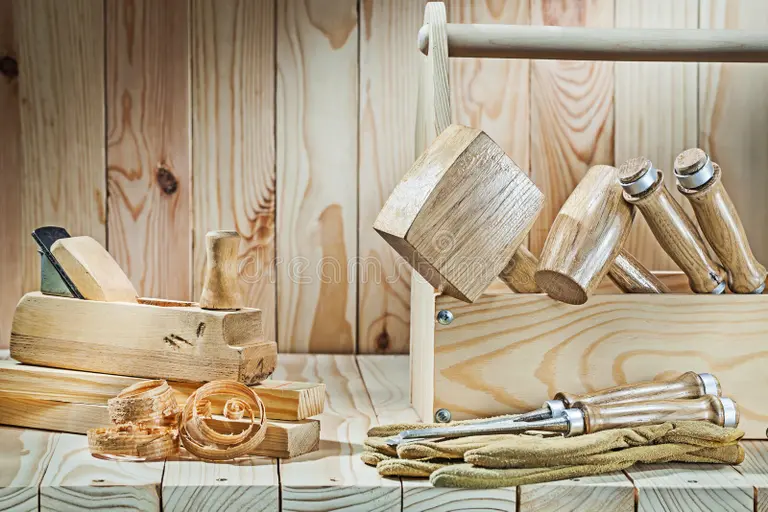
Woodworking Tools: Including hand saws, chisels, planes, and drills used by artisans in woodworking and carpentry.
Food Processing Equipment: Such as mixers, grinders, ovens, and canning machines used in small-scale food production and preservation.


Metalworking Tools: Including welding equipment, lathes, and cutting machines used in metal fabrication and blacksmithing.
Hand Tools: Various hand tools like hammers, pliers, scissors, and knives are commonly used across different cottage industries for crafting and manufacturing tasks.
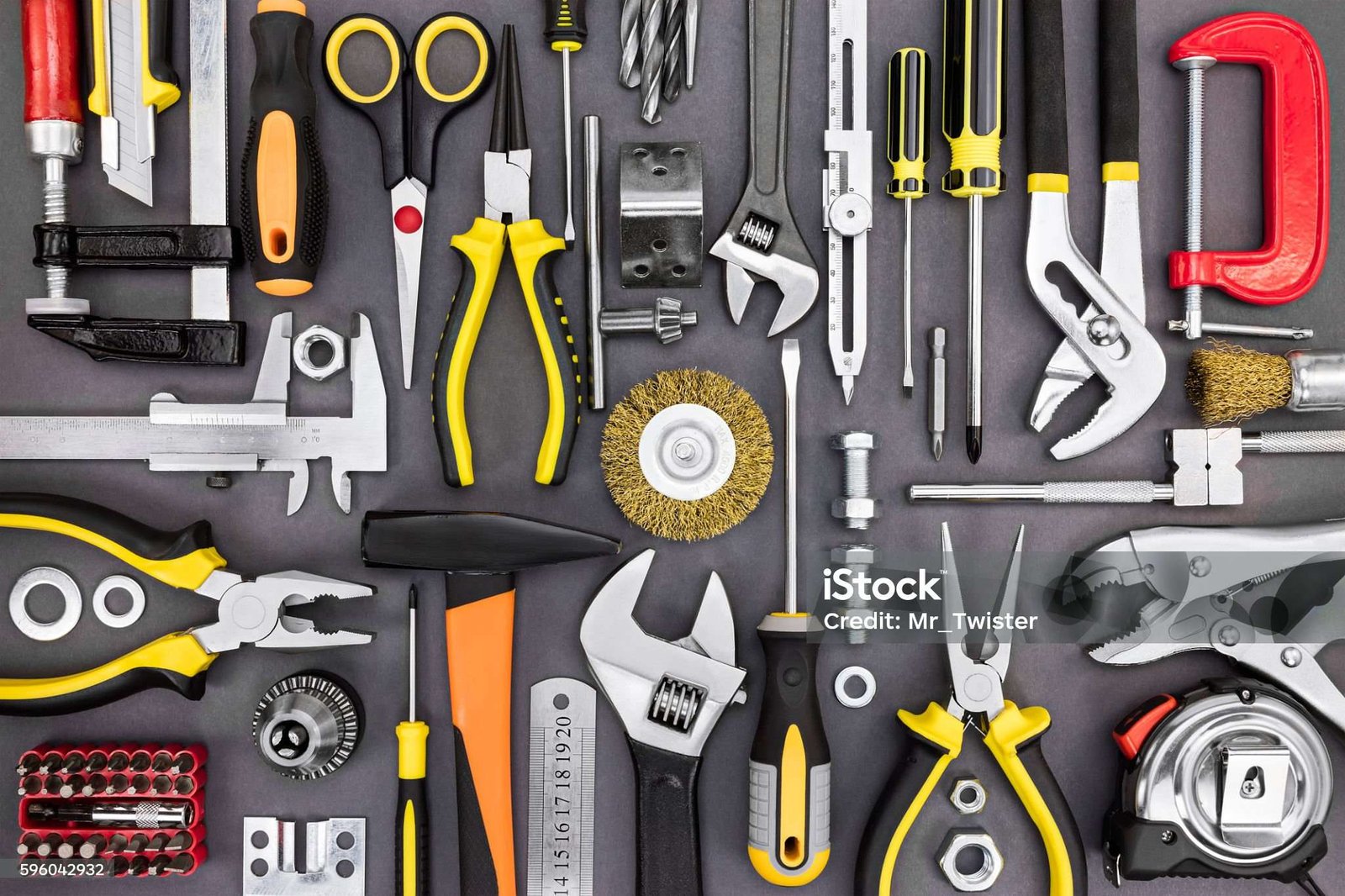
Impact of Technology on Cottage Industries
1. E-commerce Platforms: E-commerce platforms have completely changed the game for cottage industries. These online marketplaces let small businesses showcase their products to the whole world. Whether it’s handcrafted jewelry or homemade candles, cottage industry artisans can now set up shop online with ease. They can manage everything from sales to shipping right from their homes. Plus, these platforms offer tools to help them market their products and connect with customers, making it easier than ever to grow their businesses.
2. Social Media Promotion: Social media isn’t just for staying in touch with friends anymore. For cottage industries, platforms like Facebook and Instagram are powerful marketing tools. They can share photos of their products, interact with customers, and build a loyal following. By using social media strategically, cottage-industry businesses can boost their brand visibility and drive sales. It’s like having a virtual storefront that’s always open for business.
3. Automation and Its Impact: Automation is changing the way cottage industries work. From robotic assistants to smart manufacturing systems, technology is streamlining production processes and making things more efficient. While this can lead to increased productivity and lower costs, it also raises questions about job security and the future of artisanal craftsmanship. Finding the right balance between automation and human touch is key for cottage industries to stay true to their roots while embracing the benefits of technology.
Is the cottage industry
eco-friendly
Cottage industries have the potential to be eco-friendly, but it depends on various factors such as the specific practices and techniques employed, the materials used, and the scale of production. Here’s why cottage industries can be considered eco-friendly:
Local Sourcing: Many cottage industries prioritize using locally sourced materials, which reduces transportation-related emissions and supports local economies.
Sustainable Practices: Some cottage industries employ sustainable production methods such as organic farming, natural dying, and low-impact manufacturing processes, minimizing environmental harm.
Reduced Waste: Cottage industries often emphasize craftsmanship and attention to detail, resulting in less waste compared to mass production methods.
Preservation of Traditional Techniques: By focusing on traditional crafts and skills, cottage industries contribute to the preservation of cultural heritage and knowledge, promoting sustainable practices passed down through generations.
The minimum finance required for a cottage industry
The minimum finance required for starting a cottage industry can vary depending on factors such as the type of industry, scale of production, location, and specific needs. However, generally speaking, the finance required for a cottage industry may include:
Equipment and Machinery: Costs associated with purchasing or leasing necessary tools, machines, and equipment for production.
Raw Materials: Funds needed to procure initial supplies of raw materials or ingredients required for manufacturing products.
Workspace Setup: Expenses for setting up a workspace, including rent or renovation costs if operating from a dedicated location.
Licensing and Permits: Fees for obtaining business licenses, permits, and certifications required to legally operate the cottage industry.
Marketing and Branding: Budget for promoting the products or services through branding, packaging, advertising, and marketing efforts.
Working Capital: Funds to cover day-to-day operational expenses such as utilities, wages, transportation, and miscellaneous costs.
The minimum finance required for a cottage industry can vary widely, ranging from a few hundred dollars for small-scale ventures to several thousand dollars for more established operations. It’s essential to conduct thorough research and create a detailed business plan to estimate the specific financial requirements for starting and running the cottage industry successfully.
International organization
that deals with Cottage industry
International Trade Center (ITC): The ITC is a joint agency of the World Trade Organization (WTO) and the United Nations Conference on Trade and Development (UNCTAD). It helps developing countries trade more effectively and sustainably. The ITC has several programs that support cottage industries, including the EMPOWER program, which helps women entrepreneurs in developing countries access markets and finance.
Image by International Trade Center: United Nations Industrial Development Organization (UNIDO): UNIDO is a specialized agency of the United Nations that promotes industrial development in developing countries. It has several programs that support cottage industries, including the Inclusive and Sustainable Industrial Development (ISID) program, which helps small and medium-sized enterprises (SMEs) to grow and create jobs.
United Nations Industrial Development Organization (UNIDO); World Bank: The World Bank is a global financial institution that provides loans, grants, and technical assistance to developing countries. It has several programs that support cottage industries, including the Village Economies Project, which helps rural communities develop their economies through small-scale businesses.
International Labor Organization (ILO): The ILO is a specialized agency of the United Nations that promotes decent work for all. It has several programs that support cottage industries, including the SCORE program, which helps small businesses improve their competitiveness and create jobs.
Food and Agriculture Organization of the United Nations (FAO): The FAO is a specialized agency of the United Nations that leads international efforts to defeat hunger. It has several programs that support cottage industries in the food and agriculture sector, including the One World, One Health program, which helps to improve food safety and security.
Food and Agriculture Organization of the United Nations (FAO); United Nations Educational, Scientific and Cultural Organization (UNESCO): UNESCO is a specialized agency of the United Nations that promotes education, science, culture, and communication. It has several programs that support cottage industries in the cultural sector, including the Creative Cities Network, which helps cities harness the power of creativity for development.
United Nations Educational, Scientific and Cultural Organization (UNESCO): These are just a few of the many international organizations that work on cottage industries. Many national and regional organizations support cottage industries.
Top 5 countries with significant
cottage industries are
- India
- China
- Indonesia
- Bangladesh
- Mexico
CONCLUSION
By providing many economic opportunities and cultural cottage industries stand as stronger pillars in the economy of any country. Small-scale enterprises not only contribute to local economies, but they also play a very important role in preserving tradition, fostering creativity, and empowering varied communities.
The craftsmen and entrepreneurs behind cottage industries follow the spirit of craftsmanship, transformation, and community collaboration. From hand-woven textiles to intricately crafted goods, each product holds a story of dedication, hard work, and skill. Moreover, the sustainable methods used in many cottage industries reflect an effective approach toward the improvement of the environment and resources.
In these times of the digital age, new avenues are being found to connect with global audiences, which reinforces the importance of localism and unique handmade items. By supporting these small-scale ventures, we contribute to enhancing local economies and collect the tapestry of global creativity and craftsmanship. Through the development of cottage industries, we can sow the seeds for a more inclusive, sustainable, and culturally enriched future.
In conclusion, the cottage industry represents a significant and vibrant segment of the economy, characterized by its ability to operate on a small scale while yielding substantial benefits. As we explored the various examples of cottage industry, it became evident that this sector not only offers a diverse list of cottage industries but also serves as a viable business model for entrepreneurs seeking less investment and high profit business opportunities. The history of cottage industry reveals its enduring relevance, particularly as we consider its evolution into a key contributor to both local and national economies, such as in cottage industry in India and cottage industry in Pakistan.
Looking forward to 2024, the potential for growth remains promising, with innovative cottage industry ideas emerging that align with contemporary consumer trends. Entrepreneurs can capitalize on the cottage industry business model, which allows for flexibility and creativity, making it one of the best businesses in 2024. Additionally, understanding the necessity of obtaining a cottage industry license is crucial for those looking to formalize their operations.
As we delve deeper into the distinctions between small scale industry and medium scale industry, it is clear that the cottage industry continues to stand out as a compelling choice for aspiring business owners. The profitability and accessibility of this sector underscore its appeal, ensuring that it remains a significant player in the landscape of profitable business 2024.
A cottage industry is a small-scale, decentralized manufacturing business that is often run from home. It typically involves the production of goods by hand or with minimal machinery.
A cottage industry typically operates from home and focuses on handmade or artisanal products, while a small business can be larger, may have more formal operations, and often operates from a commercial space.
Yes, many cottage industries can be profitable, especially if you find a niche market or unique product that appeals to consumers.
Skills can vary depending on the product but often include craftsmanship, marketing, financial management, and customer service.
You can market your products through social media, online marketplaces, local craft fairs, and word of mouth. Building a strong online presence can significantly help.
Products that require minimal equipment, have low overhead costs, and cater to niche markets often work best. Handmade crafts, organic foods, and personalized items are popular.
Platforms like Etsy, eBay, Amazon Handmade, and social media sites like Instagram and Facebook are great for selling handmade products.
Current trends include eco-friendly products, personalized items, and the use of digital platforms for marketing and sales.

Now I understand actually what cottage industry is. Waiting for next interesting blog
Very nice…. Appreciated
Interesting & highly informative 👍
Informative…
Very informative 💯💯
I think it is new very new in my knowledge
HiGHLy InForMaTiVe🫶
Very Informative Articles, Thanks for sharing with us.
Very nice informative
Interesting good & nice
Very good. Appreciated.
Lots of information
A very important piece of writing especially for women who want to start something with small budget
Much needed area of research in particular the present Pakistani economy demands to start one of these ventures at individual level
A very compact, coherent and efficiently written article can be of great help for people working on small business industry
Artisans, craftsman n women can bring alot of foreign exchange in term of export therefore research and education on cottage industries is need of the hour. Same goes to home base businesses like bakeries, home made food, Pinterest etc
Very interesting article 👍
Good job
nice
Waah, Excellent Piece of writing infact this is how one should write blogs.
Thumbs Up ♥️
Nice
Overall, cottage industries play a significant role in both preserving cultural heritage and contributing to local economies, despite their challenges.
Impressive
Very interesting and informative 👍🏻👍🏻👍🏻
Good job
Very informative especially for woman.
Very informative👍🏻
Need of the hour, Nice effort (Y)
Good Job.
Nice Research. Very informative.
very informative
You guys are choosing very different and informative topics,like your approach…best wishes
The topic you choose is very informative. I wish you good luck.🍀.Keep it up 👍